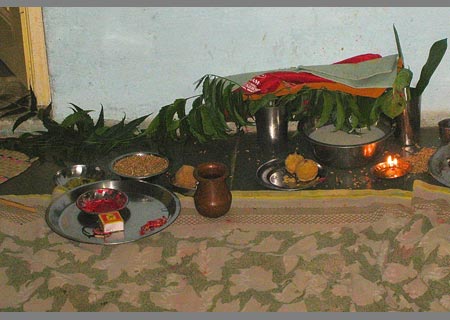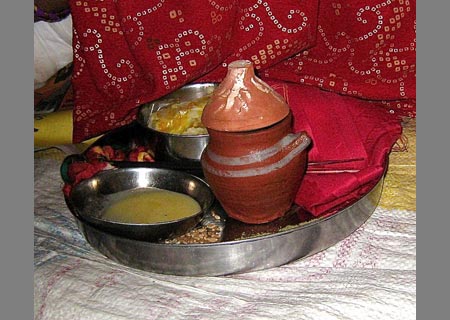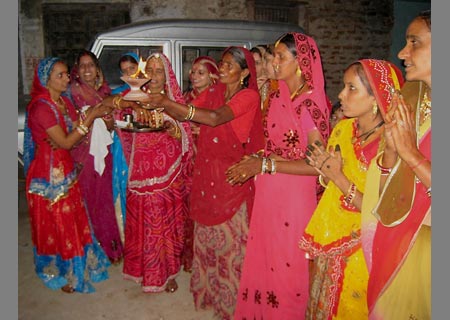Waiting for Moonrise: Fasting, Storytelling, and Marriage in Provincial Rajasthan
- Volume 29, Number 2
- Ann Grodzins Gold
- View PDF | Download PDF
- http://journal.oraltradition.org/issues/29ii/gold
Abstract
Two popular Hindu women’s rituals in Rajasthan, North India, involve fasting until visible moonrise: Bari Tij (“Grand Third”) and Karva Chauth (“Pitcher Fourth”). Women vow to undertake these fasts in order to ensure their own auspicious married states by protecting their husbands’ longevity. On these occasions, groups of women, often neighbors, collectively perform rituals that include devotional storytelling. Drawing on 30 years of ethnographic fieldwork in different regions of Rajasthan, Grodzins Gold discusses ritual narratives and performative contexts comparatively, attending to rural/urban as well as generational and social differences. Tentative conclusions suggest that the appeal of fasts and accompanying rituals may lie, in part, in their ability to sustain an illusion of stability and continuity while incorporating processes of change.
eCompanion






















